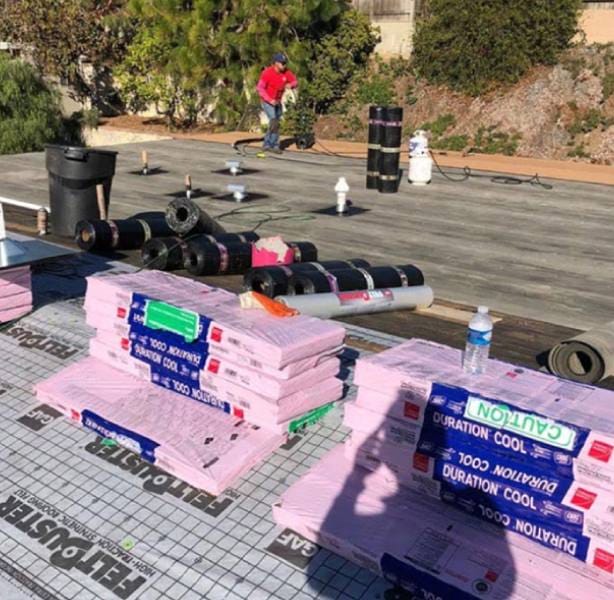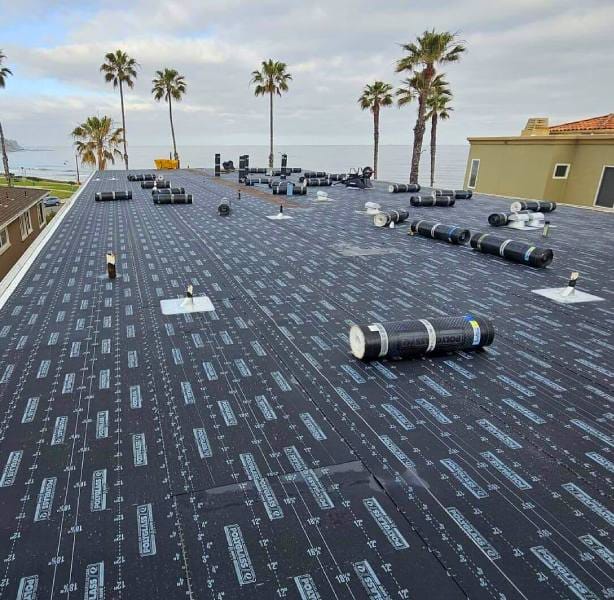Breaking Down the Costs: A Comprehensive Guide to Commercial Roofing Expenses
Introduction
When it comes to managing a commercial property, roofing is one of those crucial aspects that often gets overlooked. However, understanding the costs associated with commercial roofing can save you a lot of headaches down the road. In this guide, we'll dive deep into the various factors that influence commercial roofing expenses. From materials and labor costs to maintenance and repair considerations, we've got you covered. Whether you're a property manager or a business owner, this article will help you make informed decisions regarding your roofing needs.

Breaking Down the Costs: A Comprehensive Guide to Commercial Roofing Expenses
What Are the Main Components of Commercial Roofing Costs?
When you're commercial roofing services near me looking at commercial roofing expenses, several key components come into play. Here's a breakdown:
Understanding Material Costs in Commercial Roofing
Types of Roofing Materials
Different types of materials come with varying price tags:

- TPO (Thermoplastic Polyolefin): Generally affordable and energy-efficient.
- EPDM (Ethylene Propylene Diene Monomer): Known for its durability; slightly more expensive than TPO.
- PVC (Polyvinyl Chloride): Offers excellent durability but comes at a higher cost.
- Metal Roofing: Long-lasting but often one of the pricier options.
How Material Choice Affects Overall Cost
Choosing high-quality materials may cost more upfront but can save money in the long run due to decreased maintenance needs.
Labor Costs for Commercial Roofing Installation
Why Hire a Commercial Roofing Contractor?
Hiring an experienced commercial roofing contractor ensures that your roof is installed correctly, minimizing future issues. While DIY might seem tempting, improper installation can lead to costly repairs later.
Factors Influencing Labor Costs
Assessing Size and Complexity in Roof Design
How Does Roof Size Impact Costs?
Larger roofs require more materials and labor hours, naturally increasing expenses.
Complex Roof Designs vs. Simple Roofs
Simple roofs are generally cheaper to install than those with multiple levels, slopes, or features like skylights.
Geographic Location's Influence on Pricing
Regional Price Variations
Prices for materials and labor can vary significantly depending on where your building is located due to local economic conditions.
Local Codes and Regulations
Some areas have strict building codes that may require additional permits or inspections, adding to your overall costs.
Choosing the Right Roofing System for Your Needs
Flat vs Pitched Roofs
Flat roofs are usually less expensive to install than pitched roofs but may require more frequent maintenance.
Benefits of Different Systems
Each system has its advantages:
- Flat roofs are easier to maintain.
- Pitched roofs often last longer due to better water runoff.
Maintenance Costs Over Time
Routine Maintenance Expenses
Regular inspections can help catch issues early before they become major repairs, saving money long-term.
Repair vs Replacement Decisions
Sometimes it's more cost-effective to replace an aging roof rather than continually patching it up.
Hidden Costs in Commercial Roofing Projects
Permit Fees and Inspections
Before starting any work, you may need permits which can add unexpected costs.
Insurance Coverage
Make sure your contractor has insurance; otherwise, you could be liable for accidents occurring during the project.
The Importance of Warranty Options
Most quality roofing systems come with warranties that protect against defects and installation errors—be sure you understand what's included!
Frequently Asked Questions (FAQs)
1. What factors influence commercial roofing costs?
Costs depend on materials used, size and complexity of the roof design, geographic location, and labor expenses from your chosen contractor.
2. Can I install my own commercial roof?
While DIY installation might save money upfront, hiring a professional contractor ensures proper installation which saves money on repairs later on.
3. How do I choose the right roofing material?
Consider factors like climate conditions in your area, longevity preferences, energy efficiency needs, and budget constraints when selecting materials.
4. What are common maintenance tasks for commercial roofs?
Routine inspections should include checking for leaks or damage after severe weather events and cleaning debris off surfaces regularly.
5. How long does a commercial roof typically last?
The lifespan varies by material; TPO roofs last about 20 years while metal roofs can last over 50 years if properly maintained!

6. What should I look for in a commercial roofing contractor?
Look for experience level within similar projects completed previously along with good reviews from past clients!
Conclusion
Understanding "Breaking Down the Costs: A Comprehensive Guide to Commercial Roofing Expenses" not only helps you budget effectively but also empowers you as a property manager or business owner making vital decisions about your building’s protection against elements! Remember always consult with qualified professionals who understand both local conditions & requirements before proceeding!
By keeping these insights at top-of-mind during planning stages ensures smooth sailing ahead when it comes time for any necessary repairs or installations!